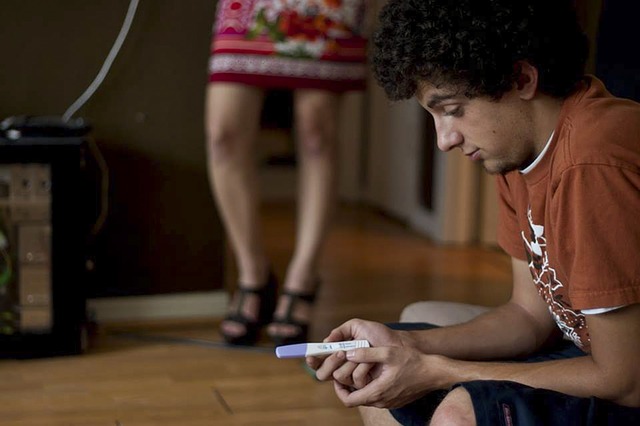The moment you decide it’s time to start a family, you notice just how much it dominates your time and thought. Everyday decisions that were previously on auto pilot become complicated. Everything becomes a puzzle from what you’re going to eat (“which foods encourage fertility?”) to holiday plans (“what if I’m in my third trimester when the trip to NYC is scheduled?”). Against this backdrop of increased stress, it is not surprising that a lack of initial success in conceiving can go from frustrating to distressing in no time whatsoever. Here are some commonly asked questions to help you navigate conception.
Navigate Conception #1: How Long Should We Try Before Seeking Help?
 The answer to this question depends on the age of the woman trying to conceive. Doctors recommend that a woman younger than 30 needn’t look for outside help for the first year of trying. You should know that for all of those women who get pregnant on the first attempt, there are countless who don’t conceive for months.
The answer to this question depends on the age of the woman trying to conceive. Doctors recommend that a woman younger than 30 needn’t look for outside help for the first year of trying. You should know that for all of those women who get pregnant on the first attempt, there are countless who don’t conceive for months.
If you’re over thirty, it’s recommended that you give it at least six months. The chance of complications increases after the age of 35, especially if you’ve had hormone problems or have been on birth control for a long time. If there is no apparent reason you have not conceived, it is usually after a year that couples may look into affordable IVF or other options.
Navigate Conception #2: Is It My Fault?
There’s no denying that infertility can be a result of a physical health issue with one or both partners, but apportioning fault is another game entirely, and wholly counterproductive to the mission. Sometimes, couples are for one reason or another not well-matched when it comes to conception. After the aforementioned six or twelve months, you’ll both be expected to undergo testing to pinpoint the issue: even then, it’s not about blame, it’s about remedying the problem and supporting one another.
Navigate Conception #3: If We Need Treatment, What Are The Chances Of Conception?
 Treatment for infertility is successful approximately 66% of the time, which is to say two out of every three couples who undergo it will achieve conception. That does leave the one-third of couples who don’t. At this point, it will be important to remember that there are still options such as adoption surrogacy. As a couple, approaching a discussion about these options can be tricky, but you’re working towards a common goal here, and it’s essential to remember that.
Treatment for infertility is successful approximately 66% of the time, which is to say two out of every three couples who undergo it will achieve conception. That does leave the one-third of couples who don’t. At this point, it will be important to remember that there are still options such as adoption surrogacy. As a couple, approaching a discussion about these options can be tricky, but you’re working towards a common goal here, and it’s essential to remember that.
Navigate Conception #4: What’s Wrong With Me?
Statistics show that there are tens of millions of couples worldwide who have experienced infertility. That’s a huge section of the world’s population, and the reasons are too many to enumerate. You may see friends decide to have a baby and conceive within weeks of that decision. You will, almost certainly, hear of relatives who weren’t even trying and only realized they were with child when their period didn’t arrive. And through all of that time, it’s only human to ask if you’re somehow failing.
There Is Nothing Wrong with You
The truth is that you can’t let that become the narrative for you. You’re trying. As noted right back at the beginning, you’ve done the right things, asked the right questions and given yourself the best chance to conceive, and nature needs to take its course. By all means, take advice from doctors, but don’t beat a path to their door every few weeks until you become pregnant. That stress is the biggest enemy you can have, and it is the most likely thing to drive a wedge between you and the partner with whom you decided to create a new life.
Focus on what you can do, not on what you can’t, and when the time comes, you’ll be all the more ready to succeed not just at getting pregnant, but also being a mom.
 Women's Life Link Be Well, Be Happy, Be YOU!
Women's Life Link Be Well, Be Happy, Be YOU!





